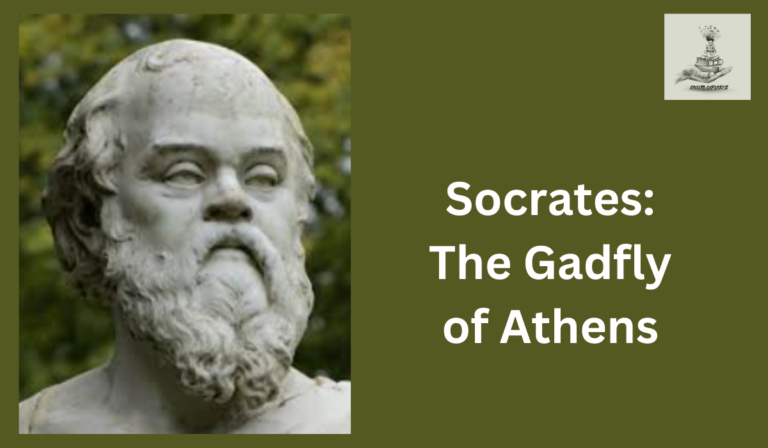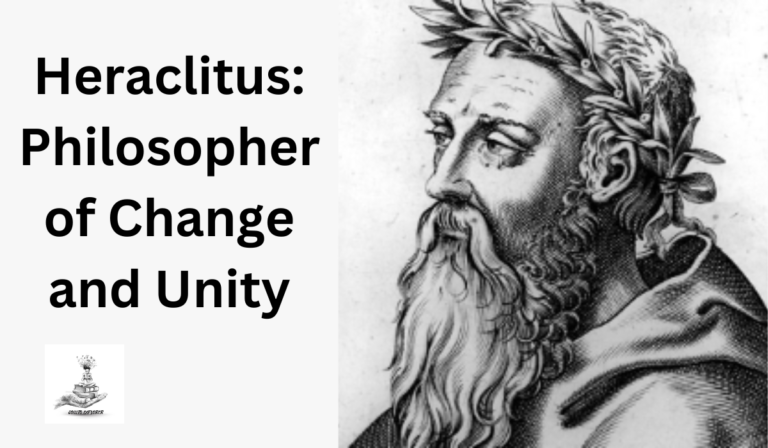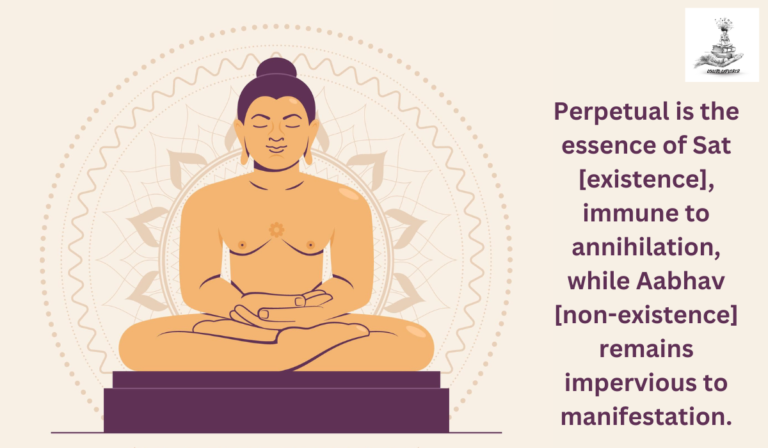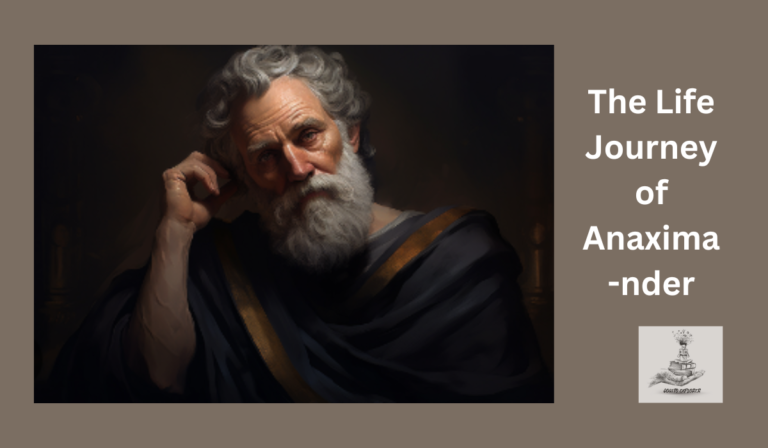Exploring Philosophical Epochs
Philosophy
Philosophy is a branch of knowledge that deals with fundamental questions about existence. It seeks to understand the nature of reality and our place in it, the principles that govern human thought, and the foundations of knowledge and morality often through critical and systematic inquiry, analysis, and argumentation. In this article, we will explore the philosophical epochs.
Philosophies of the world
Two major or say detailed philosophies of the ancient world are Indian and Western philosophies. The western philosophy finds its origin in Greek land. The Greek philosophers have a common saying that nothing moves on the surface of the earth the roots of which are not rooted on the surface of Greece except the blind forces of the earth. Underlining the work of ancient Greeks in the field of philosophy. The Indian philosophers counter the Greeks by quoting ‘Earth for them is European land only’, highlighting the Indian line of philosophical thoughts and the differences between these two.

Indian philosophy is largely based on the problems of life (dukh) and how to overcome them. Western philosophy on the other hand is oriented towards understanding the universe. The former deals with understanding or say defining the soul (Atman) whereas the latter studies the mind (Nous).
Otherworld philosophies include Chinese Philosophy, Japanese Philosophy, African Philosophy, Islamic Philosophy, Persian/Iranian Philosophy, Jewish Philosophy, Native American Philosophy, Inuit Philosophy, Maori Philosophy, etc will also be discussed in detail as we move forward in our intellectual odyssey.
Indian philosophy
Indian philosophy refers to the diverse philosophical traditions that have emerged in the Indian subcontinent over the centuries. It is influenced largely by the Vedas although some don’t follow their teachings but the center point of decision is always Vedas. Indian philosophy can be broadly categorized into orthodox (astika) and heterodox (nastika) schools. Each school of thought contributes unique perspectives on the nature of reality, consciousness, and the path to spiritual realization.
Orthodox
The orthodox (astika) schools in Indian philosophy are those that accept the authority of the Vedas, considering them as the sacred and foundational scriptures. These schools of thought believe that Vedas hold the secret of salvation (Moksha). It includes six classical systems called Shada Darshana.
- Samakhya school
- Yoga school
- Nyaya school
- Vaisheshika school
- Mimansa school
- Vedanta school
Heterodox
These schools of thought include non-Vedic traditions that reject the authority of the Vedas and are of the view that one should not trust Vedas blindly. The origin of these schools of thought is largely attributed to the Shramana tradition, which means the seeker (the person who strives). Thus they advocate the need to find our answers to the fundamental questions of the nature of reality. The tradition gives rise to several schools of thought, some of which are
-
- Buddhist
- Jain
- Charvaka
- Ajnana
- Ajivika
Western Philosophy
Western philosophy refers to the philosophical thought that originated in the Western world, primarily in ancient Greece and has since developed and evolved through various historical periods. They do not have any base literature like Vedas of Indian philosophy, thus are independent or say unbounded. Thus it is characterized by its diversity of schools, movements, and perspectives, with ongoing discussions and debates on fundamental questions about existence, knowledge, morality, and society. It can be classified based on the period of origin.
Ancient Greek Philosophy
Pre-Socratic Philosophers (6th-5th centuries BCE): Thales, Anaximander, Heraclitus, and Parmenides explored questions about the nature of reality and the fundamental substance of the cosmos.
Socratic Philosophy (5th century BCE): Socrates, as portrayed by his student Plato, focused on ethics and the search for universal definitions of virtues.
Platonic Philosophy (4th century BCE): Plato, a student of Socrates, delved into metaphysics, epistemology, and ethics. His famous allegory of the cave and theory of forms are key contributions.
Aristotelian Philosophy (4th century BCE): Aristotle, a student of Plato, made significant contributions to metaphysics, ethics, logic, biology, and politics. His works include “Nicomachean Ethics” and “Politics.”
Hellenistic and Roman Philosophy (3rd century BCE – 5th century CE): Stoicism, Epicureanism, and Skepticism were prominent Hellenistic schools.
Roman philosophers like Seneca, Epictetus, and Marcus Aurelius contributed to Stoicism.
Medieval Philosophy (5th-15th centuries):
Early Christian Philosophy: Augustine of Hippo blended Christian theology with Platonic and Neoplatonic ideas.
Scholasticism (11th-17th centuries): Thomas Aquinas, a key figure in Scholasticism, integrated Aristotelian thought with Christian theology. Marsilio Ficino in 1400s CE gave Neoplatonism.
Renaissance and Early Modern Philosophy (14th-17th centuries):
Renaissance Humanism: The concept of humanism was given by Michel de Montaigne in the 1500s CE. It emphasized the study of classical texts and the potential of human achievement.
Modern Rationalism: Philosophers like René Descartes, Baruch Spinoza, and Gottfried Leibniz emphasized reason and logic as foundations for knowledge.
Empiricism: John Locke, George Berkeley, and David Hume emphasized sensory experience and observation as the basis for knowledge. Francis Bacon in the 1600s gave a new method of scientific inquiry that involved systematic and methodical experimentation to uncover the secrets of nature.
Enlightenment Philosophy (17th-18th centuries):
Philosophers like Immanuel Kant, Jean-Jacques Rousseau, and Voltaire focused on reason, individual rights, and political philosophy. Kant’s critical philosophy sought to reconcile empiricism and rationalism.
19th Century Philosophy
German Idealism: Philosophers like Georg Wilhelm Friedrich Hegel explored the nature of reality and history.
Existentialism: Søren Kierkegaard, Friedrich Nietzsche, and later existentialists focused on individual freedom, choice, and the meaning of existence.
20th Century Philosophy
Analytic Philosophy: Bertrand Russell, Ludwig Wittgenstein, and others emphasized linguistic analysis and logical rigor.
Continental Philosophy: Phenomenology (Edmund Husserl), existentialism (Jean-Paul Sartre), and critical theory (Theodor Adorno, Herbert Marcuse) emerged.
Contemporary Philosophy (Late 20th Century – Present)
Diverse movements and themes include postmodernism, feminism, philosophy of mind, ethics of care, environmental philosophy, bioethics, queer theory, sexual ethics, intersectionality, etc.
These philosophical transitions will be discussed later as we explore the truth of our existence and the essence of our being. The major part of our discussions would be the contemporary philosophies and how they are shaping our society. How masses relate and react to these thoughts which are sometimes heretical i.e. challenging our traditional beliefs. What are their implications on the social structure and our understanding of human nature?
Other major world philosophies are:-
Chinese Philosophy:
Confucianism: Founded by Confucius, this ethical and social philosophy emphasizes moral virtue, proper conduct, and the importance of family and social harmony.
Taoism (Daoism): Attributed to Laozi, Taoism focuses on living in harmony with the Tao (the Way), emphasizing simplicity, spontaneity, and naturalness.
Legalism: An ancient Chinese philosophy that advocates strict adherence to laws and the authority of the state to maintain order.
Japanese Philosophy:
Zen Buddhism: A form of Mahayana Buddhism that emphasizes direct experience, meditation, and the realization of one’s true nature.
Shinto: The indigenous spirituality of Japan, Shinto involves the worship of kami (spirits or gods) and emphasizes rituals, purity, and reverence for nature.
African Philosophy:
Ubuntu: A philosophical concept found in several African cultures, Ubuntu emphasizes the interconnectedness of humanity and the importance of communal values.
Ashanti Philosophy: Rooted in the Akan people of West Africa, Ashanti philosophy emphasizes the importance of proverbs, ethics, and community.
Islamic Philosophy
Avicennism (Ibn Sina): A school of Islamic philosophy influenced by the Persian philosopher Avicenna, focusing on metaphysics, epistemology, and the relationship between philosophy and theology.
Averroism (Ibn Rushd): Based on the ideas of the Andalusian philosopher Averroes, Averroism addresses the relationship between reason and faith, advocating for the autonomy of philosophy.
Persian/Iranian Philosophy:
Zoroastrianism: An ancient Persian religion with a philosophical foundation, emphasizing the struggle between good and evil and the importance of individual responsibility.
Sufism: The mystical dimension of Islam, Sufism explores the inner, spiritual aspects of the faith, emphasizing love, devotion, and the pursuit of divine knowledge.
Jewish Philosophy:
Maimonides (Rambam): A medieval Jewish philosopher who integrated Aristotelian thought with Jewish theology in works like the “Guide for the Perplexed.”
Kabbalah: A mystical and esoteric tradition within Judaism that explores the nature of God, creation, and the relationship between the divine and the human soul.
Native American Philosophy:
Iroquois Philosophy: Rooted in the beliefs of the Haudenosaunee Confederacy. This philosophy emphasizes concepts such as interconnectedness, balance, and harmony with nature.
Navajo Philosophy: Grounded in the Navajo worldview, this philosophy emphasizes the interconnectedness of all beings and the importance of maintaining harmony with the natural world.
Maori Philosophy:
Rooted in the cultural traditions of the Maori people of New Zealand. Maori philosophy emphasizes concepts such as whakapapa (genealogy) and the relationship between humans and nature.
Inuit Philosophy:
The traditional knowledge and wisdom of the Inuit people of the Arctic. Emphasizes the interconnectedness of all things and the importance of sustainability.
Dreamtime Philosophy (Tjukurpa):
Rooted in the spiritual and cultural traditions of Indigenous Australians. The Dreamtime philosophy encompasses creation stories, connections to the land, and ethical guidelines.
Khmer Philosophy:
Reflecting the cultural heritage of the Khmer people in Cambodia, this philosophy includes aspects of Hinduism, Buddhism, and indigenous beliefs.
Rastafari Philosophy:
While primarily a religious movement, Rastafari has philosophical elements that center on African heritage. Resistance to oppression, and a vision of a utopian future.
Liberation Theology:
Emerging in Latin America, this theological and philosophical movement emphasizes social justice. Particularly in the context of addressing poverty and oppression.

A large part of our discussion will also focus on the ideas and beliefs of these world philosophies and their influence on today’s world.







